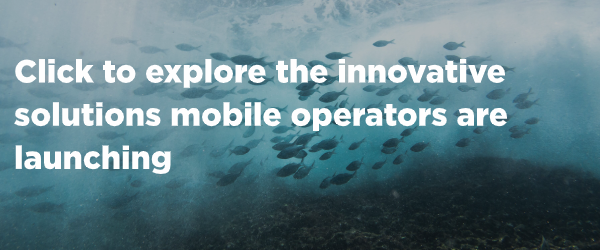As the earth’s temperature continues to rise, extreme weather patterns and cataclysmic natural disasters are becoming more frequent around the world.
Increasingly violent and turbulent weather conditions are emblematic of the severity of climate change. Weather-related hazards, particularly storms, accounted for the majority of the new displacement associated with disasters, triggering 17.2 million displacements in 2018. The volatility of these environments triggers hurricanes, floods, forest fires, heat waves and earthquakes; disrupting precious wildlife and ravaging human communities. Further negative effects of such natural disasters include epidemic outbreaks of infectious diseases, such as water-borne viruses spreading in the aftermath of a flood.
Committed to SDG 13 (Climate Action), the mobile industry is working hard to reduce its own carbon footprint and the emissions of other industries; but we are already locked in to some level of climate change. Therefore, the mobile sector has made significant progress in implementing transformative measures to help protect the animal kingdom, replenish invaluable ecosystems and save human lives, before, during and after devastating natural disasters.
Mobile operators and their partners can provide the critical intelligence needed to assist in the immediate relief efforts. They can also provide long-term strategies to build strong and adaptable communities that are more resilient to climatic extremes. Utilising the power of big data, operators can assist NGOs and public health organisations to provide lifesaving solutions to infectious diseases and punishing weather conditions, and help governments in making informed policy decisions to facilitate long-term support for vulnerable communities.
Mobile operator Far EasTone in Taiwan, is fortifying disaster preparedness in the country through connected-weather stations; which can predict accurate rainfall measurements and therefore calculate when catastrophic flooding will hit. In Japan, operator KDDI is drawing on the power of artificial intelligence and mobile data insights to support emergency services for over 1,700 individual communities in receiving real time information related to natural disasters and extreme weather.
In the aftermath of climatic extreme weather events, mobile operators are disseminating mobile technologies to reunite loved ones and rebuild communities. In Latin America, Telefónica’s Data Unit LUCA and UN FAO are working to help Colombia respond more effectively and efficiently to climatic variability and address the plight of internally displaced people, using mobile big data insights to track mobility patterns of communities driven into forced migration through extreme climate change. Through mapping the internal displacement of citizens from rural to urban areas, governments can facilitate long-term support for vulnerable societies.
In 2017, mobile operators AT&T, Claro and Sprint united forces in Puerto Rico in the aftershock of the catastrophic effects of Hurricane Maria; the worst natural disaster in the country’s history. The power grid was so gravely damaged, 95% of the country was without network service, plunging desperate relatives into turmoil about the fate of their loved ones and paralysing the communicative effectivity of the emergency services. The collaborative efforts of all three mobile operators, sharing resources, equipment and information to urgently restore networks, was a humanitarian feat of remarkable scale and success.
Fostering global partnerships with other stakeholders within the mobile ecosystem and leaders of wider industries such as in Puerto Rico, is a cornerstone element of proactively fighting the effects of climate change. This example alone is demonstrative of the significant impact mobile leaders can have, when working collaboratively. The industry is committed to driving climate action now and in the future. Mobile operators around the world continue to launch their own initiatives, designed to transform communities and protect the environments in which we inhabit.
